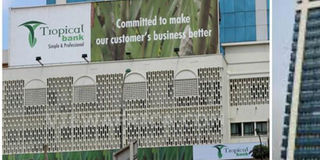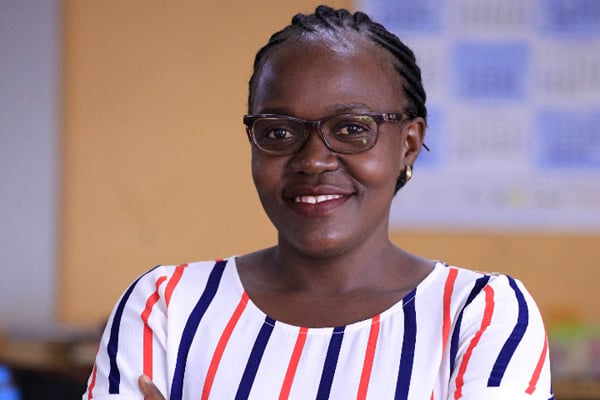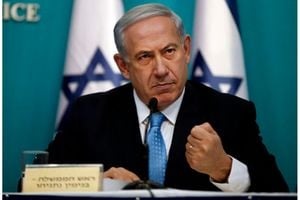Tropical Bank ordered to unfreeze World Islamic Call Society accounts

Tropical Bank head offices in Kampala, Uganda. Photo | File
What you need to know:
- WICS further stated that around April 2020, they attempted to transact against their Uganda Shilling and Dollar accounts which were used for daily organization operations but were shocked to discover that the said accounts and the other accounts were frozen by the bank.
Kampala High Court has directed Tropical Bank to unfreeze four bank accounts owned by the World Islamic Call Society (WICS), branding the actions as being unlawful and a violation of their rights.
“The actions of the defendant (Tropical Bank) are a total breach of contract between the plaintiff (WICS) and defendant rotating around the bank-customer relationship. The bank is entitled to close or freeze the bank account but they ought to treat the customer fairly by ensuring that the freeze was justified and ensure that the freeze is quickly lifted instead of making it appear indefinite,” Justice Musa Ssekaana ruled.
In their lawsuit, WICS had claimed to be operating four bank accounts in the dollar, euro, and shilling with Tropical Bank which they opened in 2019.
WICS further stated that around April 2020, they attempted to transact against their Uganda Shilling and Dollar accounts which were used for daily organization operations but were shocked to discover that the said accounts and the other accounts were frozen by the bank.
Court documents indicate that WICS was informed that the accounts were frozen under the instructions of the general manager of the World Islamic Call Society in Tripoli-Libya.
However, the bank ignored protestation from WICS against the arbitrary freezing of its bank accounts as well as directives from the Ministry of Foreign Affairs on their status and the need to lift the restrictions on its accounts.
But WICS challenged the actions of the bank as being unlawful, suspicious and unjustified, and in breach of the Diplomatic Privileges Act and Host Agreement.
While delivering his ruling, Justice Ssekaana noted that the actions of the bank through the managing director to receive directions on how the bank account in Uganda should be operated was an abuse of authority.
“The bank’s management was wrong to receive instructions from third parties to contract even though it was from the country of origin of the plaintiff as the mandate of the plaintiff bank accounts is guided by Host Agreement and it can only be changed by amending the agreement to take away the authority of the country-director,” Justice Ssekaana observed.
“In case the head office of World Islamic Call Society wanted to retain control of the bank accounts in Uganda, they were at liberty to include such clauses in the relationship between the bank and customer. They would have expressly agreed to any peculiar arrangement to define the relationship including the imposition of obligations and responsibilities outside the ordinary bank customer relationship known under the law,” he added.
Justice Ssekaana further explained that the decision to freeze an account often happens with no warning or explanation and customers suddenly find out that they have no access to their cash as they are suspended, thus imputing distress and inconvenience to their clients.
On further faulting the bank, Justice Ssekaana said it got clarity on the operations of the accounts of WICS from the respective offices like the Libyan Embassy in Uganda and the Ministry of Foreign Affairs of Uganda, it ought to have lifted the freeze instead of continuing to insist on getting further instructions from third parties from Tripoli-Libya.





